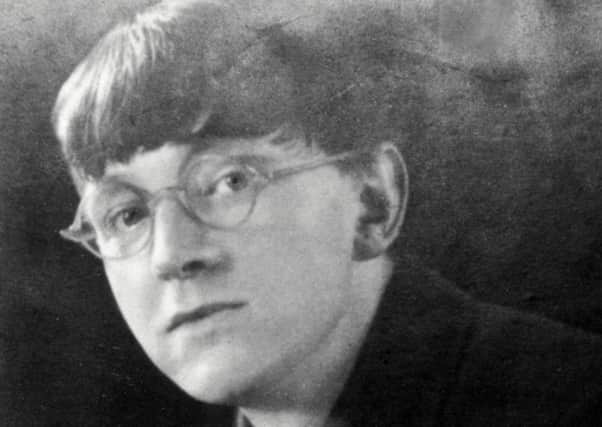Book review: David Jones - Engraver, Soldier, Painter, Poet, by Thomas Dilworth


He was befriended by TS Eliot and the controller of what would become Radio 3, studied under the notorious Eric Gill, and was championed by Kenneth Clarke. His admirers included Stravinsky, Dylan Thomas, Seamus Heaney and Hugh MacDiarmid. Most of the while he was living in almost monastic poverty. So how do you simplify a life like that?
Dilworth’s biography does it simply: a bit of blunt Freud, a mess of anecdotage, and odd minutiae over deep reading. I do not need to know – yet was told three times – that Jones, in his poverty, breakfasted on grapefruit and boiled eggs; nor am I terribly concerned with exactly which brand of haemorrhoid cream a friend brought to him. Dilworth tells the reader a lot about finances and very little about the nature of worth, a very un-David Jones proposition. There is a confetti of detail, and very little analysis of a singular life and oeuvre. He provides some strong readings of the visual art, particularly how Jones’ leg wound in the war was translated and transfigured in his paintings. He is equally good on the distinctive “inscriptions” – part poem, part painting, and a beguilingly strange mixture of Roman palaeography and Modernist swerve. (A different book might have looked at Iain Hamilton Finlay’s resurrection of the purely classical for unclassical purposes).
Advertisement
Hide AdAs for the poetry, Dilworth says very little. It is as if he presumes the reader already knows why In Parenthesis and The Anathemata are as important as they are. I shall make a stab at explaining, using one of the throwaway yarns Dilworth provides. In old age, after a stroke and a fall, Jones was taken to hospital “experiencing explosive pain”, as Dilworth inelegantly phrases it. In the hospital, Jones apparently shouted “Christ Almighty”, and was rebuked for doing so. But the genius of the great poems is to make the oath of a Tommy in the trenches and the genuine bewilderment of God one and the same. In both poems time is out of joint, the here and the then are layered, and Lancelot and Arthur are at one with the ordinary, extraordinary infantry. To read Jones is to become a stereoscopic reader, with the profane and the profound, the vile and the divine, the gone and the now, simultaneous. The Celtic and the Roman, the Christian and the Pagan are braided through his work. In a book so full of irrelevant detail, I kept wondering if Jones had ever read James Frazer’s The Golden Bough.
Dilworth praises Jones, but does so with such inaccurate hyperbole that I fear it will drive readers from the work. Calling In Parenthesis the “only” epic in English is a disservice to Christopher Logue, Derek Walcott and Charles Olson. Saying that the vocabulary of The Anathemata is “extraordinarily rich, greater in variety than all the poetry of Yeats, Eliot, William Carlos Williams, Wallace Stevens and Larkin combined” is quite a claim – I’d have like to have seen a footnote. It’s also conspicuous that the list does not include Marianne Moore, Sylvia Plath, Edith Sitwell, Stevie Smith and Denise Riley.
But we do have footnotes; several of which refer the reader to the work of T Dilworth, others of which berate other academics for their inadequacies and shortcomings. There is something ungallant about it all, and given how almost psychotically polite Jones was, this is more than jarring. The jacket flap proclaims that Dilworth is the “pre-eminent reader and interpreter of the work of David Jones”. It is rather strikingly different to Jones’ own humility. A new generation of readers of Jones are unlikely to be inspired by being told his multifarious, polyphonic, plural and plagal work has already been read better beforehand. Perhaps the most baffling line comes in the Acknowledgments, where we are told that this is a “condensation of a much longer document, which will eventually be a public website”. Snook cocked at an editor there then.
Jones ought to be part of the established canon; that he is not is a shame. But to make him accessible needs someone who can walk the reader across the lines. His life was both tragic – mental illness, unrequited love, desperate poverty – and yet heroic, in its determination, its commitment and its graciousness. That many referred to him as saintly is not unimportant.
*David Jones: Engraver, Soldier, Painter, Poet, by Thomas Dilworth, Jonathan Cape, £25